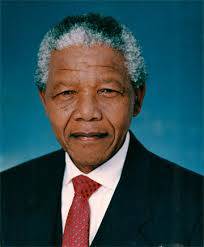Nelson Rolihlahla Mandela, born on July 18, 1918, in the small village of Mvezo in Umtata, then part of South Africa's Cape Province, would go on to become a global symbol of resistance, reconciliation, and triumph over adversity. His life's journey is a testament to the power of resilience, forgiveness, and unwavering commitment to justice.
Mandela's early life was marked by the challenges of growing up in a society deeply entrenched in racial segregation and discrimination. His father's death when Mandela was just nine years old had a profound impact on shaping his character. The young Mandela was adopted by the Thembu regent, Jongintaba Dalindyebo, and received a formal education that laid the foundation for his future activism.
In the 1940s, Mandela became involved in anti-apartheid activities, joining the African National Congress (ANC) and dedicating himself to the fight against racial injustice. The apartheid regime, which institutionalized discrimination against the majority black population, spurred Mandela to become a prominent advocate for equality and human rights.
Mandela's activism culminated in his role as a leader of the ANC's armed wing, Umkhonto we Sizwe, translating to "Spear of the Nation." His commitment to nonviolent resistance shifted to armed struggle as a response to the government's increasing brutality. In 1962, Mandela was arrested and subsequently sentenced to life imprisonment during the infamous Rivonia Trial in 1964.For 27 years, Mandela languished in prison, enduring harsh conditions on Robben Island and later in Pollsmoor Prison. His imprisonment did not break his spirit; instead, it fueled a determination that inspired countless others in the struggle against apartheid. Mandela's resilience became a beacon of hope, symbolizing the enduring human spirit even in the face of the harshest oppression.
The turning point came in 1990 when South African President F.W. de Klerk, recognizing the need for change, ordered Mandela's release. This marked the beginning of a new era for South Africa. Mandela's emergence from prison was not marked by bitterness or a thirst for revenge; instead, he embraced the principles of reconciliation and forgiveness.
In 1993, Mandela was awarded the Nobel Peace Prize alongside President de Klerk for their efforts to dismantle the apartheid system peacefully. The following year, South Africa held its first democratic elections, and Mandela, affectionately known as "Madiba," became the country's first black president. His election was a historic moment that symbolized the triumph of justice and the end of apartheid.
As president, Mandela faced the formidable task of healing a deeply divided nation. His leadership was characterized by a commitment to inclusivity and reconciliation. Mandela established the Truth and Reconciliation Commission, which aimed to address the crimes of apartheid through open hearings and forgiveness. This unique approach to justice emphasized healing and unity over vengeance.
Mandela's presidency also focused on social and economic issues, striving to address the legacy of apartheid's inequalities. He worked to build a multiracial government, dismantling the vestiges of institutionalized racism. His efforts laid the groundwork for a more equitable South Africa, where all citizens could participate in shaping the nation's future.
In 1999, after a single term as president, Mandela stepped down, leaving a legacy that extended far beyond South Africa's borders. His life's journey had become a global inspiration, illustrating the transformative power of forgiveness and reconciliation. Mandela continued his advocacy for peace and social justice, establishing the Nelson Mandela Foundation to promote his ideals.
Nelson Mandela's passing in 2013 marked the end of an era, but his legacy lives on. His life exemplifies the resilience of the human spirit, the power of forgiveness, and the ability to overcome seemingly insurmountable challenges. Mandela's story continues to inspire individuals and movements around the world, reminding us that true greatness lies in the pursuit of justice and the unwavering commitment to a better, more inclusive future.




No comments yet
Be the first to share your thoughts!